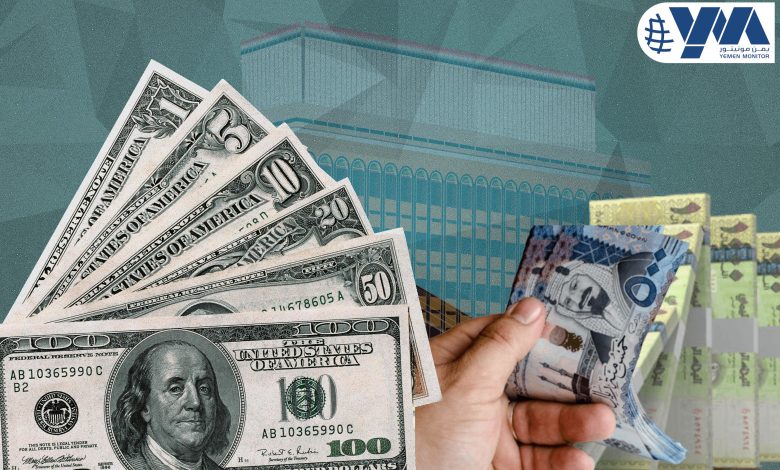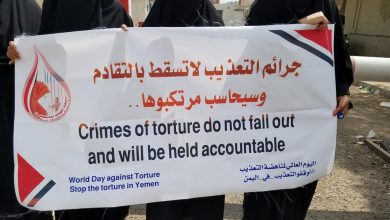Yemen’s Government Campaign to Slow the Rial’s Collapse Continues

Yemen Monitor/Aden/Exclusive:
The Yemeni Rial stabilized on Monday near its all-time low of 2050 against the dollar in areas under the control of the internationally recognized government, which has launched a campaign targeting unlicensed exchange companies.
Yemeni money changers in Aden and Taiz said the Rial was trading at 2050 against the dollar, maintaining the same record low level, days after breaking its previous record low of 2000 against the dollar. In early 2015, the Yemeni Rial was worth 215 Rials to the dollar.
This comes as the Yemeni government has closed dozens of exchange companies in Aden, the temporary capital, Hadramaut, Shabwa, and Mahra, due to their lack of licenses or expired licenses.
In recent days, it has become common to see local officials from the central bank and the public prosecution, accompanied by security personnel, in the streets of Aden, Mukalla (the center of Hadramaut), Ataq (the center of Shabwa), and al-Ghaydah (the center of Mahra) closing unlicensed companies and inspecting the licenses of exchange shops.
The government has previously confirmed that currency traders are speculating on the value of the Rial, leading to the currency’s collapse.
The Yemeni News Agency quoted the governor of the central bank branch in Shabwa, Saleh Fadaq, as saying on Monday that the campaign against unlicensed exchange companies continues with the aim of stopping the collapse of the Yemeni Rial, ending currency speculation, and combating money laundering.
The government’s actions have not led to a recovery of the Rial, but their goal is to slow its decline. However, the main reason is the Houthi attacks on oil ports in Hadramaut and Shabwa in late 2022, which led to a complete halt in oil exports.
Mustafa Nasr, director of the Center for Economic Studies and Media, said that the government campaign against unlicensed exchange companies has not led to the recovery of the Rial because it has only targeted small companies and not the major exchange companies that control the market, calling for stricter government measures to prevent the collapse of the Rial.
Nasr told Arab News that “the exchange sector has become unregulated and inflated and possesses enough liquidity to affect the exchange market.”
In its latest report on the Yemeni economy, released late last month, the World Bank predicted a bleak economy in 2025, saying that Yemen’s GDP is expected to decline by 1% in 2024, compared to a decline of 2% in the previous year.
Sixty percent of Yemenis suffer from food insecurity due to an unprecedented level of insecurity caused by the war, and Houthi attacks on oil facilities have reduced government revenues by 42%, making it difficult for the government to provide public services and reduce the value of the Yemeni Rial, according to the World Bank.




